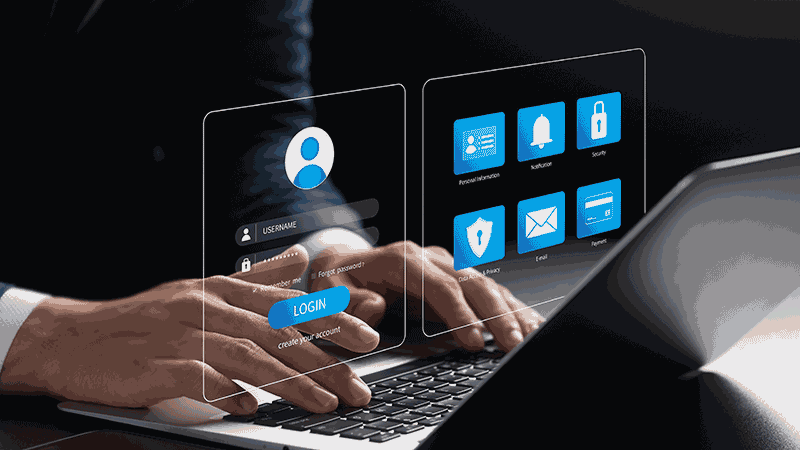Is email secure for sensitive data? You are not the only one asking this tricky question. Let’s look at telling statistics for 2022 across industries and see the importance of using only a secure solution for sharing confidential business information that has never had a breach:
Healthcare organizations worldwide faced 1,463 weekly cyberattacks, a 74% increase compared to 2021. Malware attacks on financial institutions increased by 35% in Q1 2022. The energy industry was the target of 10.7% of cyberattacks. At least 44 U.S. colleges or universities and 45 school districts suffered ransomware attacks.
In the second half of 2022, cyber-attacks on governments surged by 95% globally. And to top it all off, 29% of businesses reported losing a client due to a business email breach. Why is email security so weak?
Email security is dangerously weak for multiple reasons, including the following:
An open network infrastructure makes accessing your confidential data easy for anyone with the internet, creating significant attack vulnerabilities.
Outdated internet security protocols in many email providers make it easy to bypass them since they are not updated regularly, which may lead to identity theft.
The risk of interception and exploitation due to insecure networks puts emails under additional pressure.
The lack of end-to-end encryption in most email providers often compromises confidential information.
Some users don’t take the necessary steps for email hacking prevention, such as password protection or two-factor authentication.
As a result, email security is far less reliable than other solutions for those who need to send sensitive information. So, the next time you ask yourself, “Is sending documents over email secure?” Remember the weaknesses mentioned, and the dangerous types of email attacks are prevalent, so you surely know people who have been attacked, so maybe you are safe, but the recipient is not.
What information should not be sent via email?
Avoid sending the following data via email servers since they aren’t powered by email encryption and other sophisticated security mechanisms:
- Personal information: social security numbers, banking information, and addresses
- Confidential information: trade secrets, employee data, or proprietary technology
- Financial information: payment information, account numbers, and credit card numbers
- Legal documents: contracts, court orders, or legal advice
Private conversations: emails are not for safe online communication; any information you send via email can easily be intercepted and read by anyone, including hackers.
In conclusion, you should only use well-protected business document storage to share sensitive information and ensure that only the intended recipient can access it. Imagine someone hacking into your inbox and stealing those files. The risk may result in collateral damage and a data breach that could have been avoided. Here you can learn more about file encryption with data rooms.
Let’s take human error as a risk. You may send the file to the wrong person. Even without someone hacking into your email inbox, the files could get into the wrong hands. Sending an email to the wrong addressee happens more often than you think. Sometimes it takes a typo to send the files to the wrong recipient. You may even accidentally click the email address of a competitor, sending them sensitive information that could prove detrimental to your business — all it takes is a simple misstep.
So let’s say you avoid those missteps; your email can be forwarded to a third party after sending off your email to the recipient’s inbox, you may think that your files are safe, but there is nothing further from the truth. Any email can be forwarded, and you have no control over it. You might try protecting your files by storing them in an online hosting service. However, you may forget to give the intended recipient the appropriate permission to access those documents.
Consider virtual data rooms as a secure solution for sharing sensitive information and documents.
A virtual data room is a perfect solution if you need secure alternatives to email. VDRs offer a safe, confidential, and compliant environment for file-sharing and privacy in digital communication powered by data leakage prevention mechanisms. Specifically, 256-bit secure socket layer (SSL) encryption makes the storage virtually impossible for hackers to access. In addition, you can also manage user access and permissions, so you control who has access to your data and what they are allowed to do with it.
Vault Rooms has been an industry-leading cloud-based virtual data room provider for more than two decades. We have proudly facilitated thousands of global M&A transactions across various industries for various clients – including investment bankers, accountants, attorneys, private equity firms, and banks. Our virtual data rooms enable worldwide clients, 24/7/365, to safely collect, share and track business-critical documents on the Vault Rooms platform.
Vault Rooms also offers a wide range of features:
- document tracking
- Streamline document collection and securely
- Security permissions for viewing, printing, download
- real-time audit trails of all user’s activity
- the ability to set file expiration dates.
- It makes monitoring who accessed data and when simple.
- Full list of use cases and features https://vaultrooms.com/features/
Data rooms are the most reliable business solution for those who want to send sensitive information securely. They provide the utmost security and various other virtual data room features to streamline and protect data management, including data room indexing, AI-powered redaction, and full-text search.
Do you still wonder, “Is it safe to send confidential information in an email”? Make confident and intelligent business decisions instead and avoid becoming a cyber victim.





